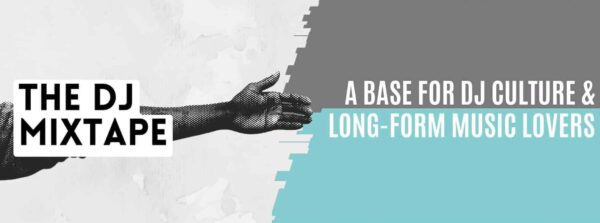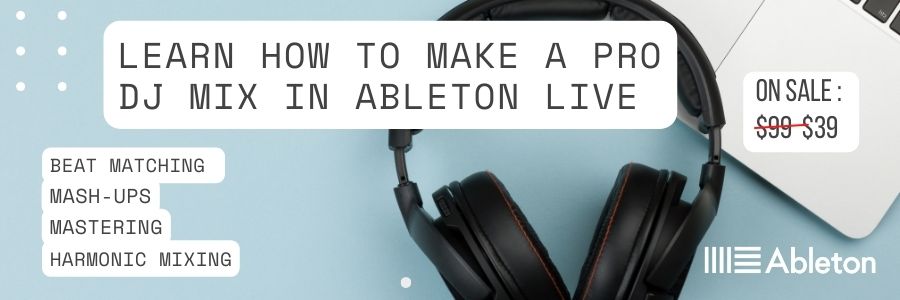The music industry is constantly evolving, and with the advent of technology, DJs now have access to a range of tools and software that can enhance their performance. Artificial Intelligence (AI) is the latest innovation to make its way into the world of DJing, with the potential to revolutionize the profession. In this article, we will explore AI DJing, its advantages and limitations, and its potential impact on the music industry.

Key AI DJing Uses
| AI Use | Description |
| Stem Separation | AI can separate the different components of a track, such as drums, bass, and vocals, into individual stems. This allows DJs to mix and manipulate each stem separately, opening up new creative possibilities. |
| Music Recommendation Systems | AI-powered recommendation systems analyze a user’s listening habits to suggest new tracks or artists that they may like. DJs can use these systems to discover new music and expand their library. |
| Beatmatching and Mixing | AI algorithms can analyze the tempo and key of tracks to suggest compatible mixes, or even automatically adjust the tempo and key of tracks to match each other. This improves the accuracy of beatmatching and mixing, and can save DJs time during live performances. |
| Music Production | AI can be used to generate new music automatically, either by analyzing existing tracks and creating similar ones, or by creating entirely original compositions based on user input. This can help DJs create new tracks quickly and easily. |
| Music Streaming | AI can be used to analyze user data and create personalized playlists or radio stations. This allows DJs to discover new music and share it with their audience. |
Understanding AI in DJing
AI is an umbrella term that refers to the development of computer systems that can perform tasks that usually require human intelligence. In DJing, AI is used to enhance the DJ’s performance and streamline the music production process. Machine learning is a subset of AI that involves training a computer system to recognize patterns in data and make predictions based on that data. In DJing, machine learning is used to analyze music and predict which tracks will work well together.
AI has the potential to revolutionize the DJing profession by providing DJs with tools that allow them to be more creative and efficient. For example, AI-powered software can analyze the key and tempo of a track and suggest other tracks that would mix well with it. This can save DJs time and make their performances more seamless.

Advantages of AI in DJing
AI has many potential advantages for DJs, particularly in terms of accuracy and access to a larger music library. With AI-powered beatmatching and mixing, DJs can achieve higher levels of precision, resulting in more seamless transitions between tracks. This can enhance the overall listening experience for the audience and increase the DJ’s reputation.
Furthermore, AI-powered stem separation can enable DJs to be more creative and experimental in their sets. Stem separation involves separating individual elements of a song, such as the vocals, drums, and bassline, into separate tracks. This allows DJs to manipulate and mix these elements independently, creating new and unique sounds.
Tools and Software for AI DJing
Stem separation is one of the most popular AI tools used by DJs today. Stem separation involves using AI to isolate individual parts of a track, such as vocals, drums, and bass, making it easier to mix and manipulate each element separately. This allows DJs to be more creative and discover new sounds and remixes in real-time.
There are several software options available for DJs who want to incorporate AI into their performances. Some of the most popular software includes Mixed in Key, Serato DJ, and Virtual DJ. These software programs use AI to analyze music and suggest tracks that would work well together. They also provide DJs with tools for beatmatching and mixing tracks.

AI and Music Production
AI has the potential to revolutionize the music production process, particularly through the use of AI-generated music. AI-generated music involves the use of machine learning algorithms to analyze and replicate musical patterns and structures. This can result in the creation of entirely new compositions, or the emulation of existing musical styles.
AI-powered music production software can also assist musicians in the creative process by suggesting chord progressions, melodies, and other musical elements. This can save time and effort in the songwriting process, and also provide new sources of inspiration.
However, some critics argue that AI-generated music lacks the emotional depth and nuance of human-created music, and that the use of AI in music production may lead to a homogenization of musical styles.
AI in Music Streaming and Recommendations
AI is widely used in music streaming services, particularly in the development of music recommendation systems. These systems use machine learning algorithms to analyze a user’s listening habits and suggest new tracks and artists based on their preferences.
For DJs, this can be particularly useful in discovering new and obscure tracks that may not be widely known. AI-powered music recommendation systems can also help DJs tailor their sets to their audience’s tastes, leading to a more engaged and satisfied audience.
However, there are concerns about the potential for bias and manipulation in AI-powered music recommendations, particularly in terms of promoting certain artists or genres over others. There is also the risk that the use of AI in music recommendation systems may lead to a narrowing of musical diversity and a homogenization of popular music.
Limitations of AI in DJing
While AI has shown great potential in enhancing various aspects of DJing, it still has its limitations. One of the major limitations is the lack of human touch and creativity. While AI can analyze and process large amounts of data, it cannot replace the human intuition and creativity that is required for DJing.
Another limitation of AI in DJing is its inability to read the crowd and adapt to changing moods and preferences. A skilled human DJ can pick up on subtle cues from the audience and adjust their set accordingly, but AI cannot replicate this level of intuition and responsiveness.
Additionally, AI can sometimes produce results that lack musicality and are too formulaic. While AI algorithms can analyze and manipulate music elements such as tempo and key, they may not always create a coherent and musically pleasing result. Human DJs, on the other hand, can use their experience and creativity to create unique and musically satisfying sets.

Ethics Of AI DJing
The use of AI in DJing raises a number of ethical concerns, particularly when it comes to the role of human DJs. One of the biggest concerns is that the use of AI could ultimately replace human DJs altogether, potentially leading to job loss and a decrease in the quality of live performances.
Another ethical concern is the potential for AI to be used to manipulate music in ways that are not in line with the original artist’s intent. For example, AI could be used to alter the tempo or key of a song, or to create remixes without the artist’s consent.
Additionally, there is a risk that AI-powered music recommendation systems could lead to a homogenization of music, where only popular and mainstream music is recommended to listeners. This could stifle creativity and prevent lesser-known artists from being discovered.
The Future of AI in DJing
Despite these ethical concerns, the future of AI DJing looks bright. With continued advancements in technology, it is likely that we will see even more AI-powered tools and software for DJs in the coming years.
One potential area of growth is in the use of AI for music production, where AI-powered software could be used to generate new music and remixes. This could be particularly useful for DJs who want to create unique and original tracks for their live performances.
Another area of growth AI Djing is for music streaming and recommendation systems. As these systems become more advanced, they could help DJs discover new music and expand their music library, ultimately leading to more creative and diverse performances.

Final Thoughts On AI DJing
AI has the potential to revolutionize DJing, from beatmatching and mixing to music production and recommendation systems. While there are certainly limitations and ethical concerns to consider, the benefits of AI in DJing cannot be ignored.
As AI technology continues to advance, it will be interesting to see how it transforms the world of DJing and the music industry as a whole. The integration of AI into DJing is just the beginning of a new era in music, one that promises to be both innovative and exciting.
If you enjoyed our blog on AI DJing, then check out our post on our Top 10 DJ Technologies
You may also like our Youtube video on Making a DJ Mix With Ableton Live

FAQs:
Q1: How does AI help DJs in live performances?
AI can assist DJs in live performances by improving the accuracy of beatmatching and mixing, as well as providing access to a larger music library through music recommendation systems.
Q2: Can AI completely replace human DJs?
While AI has the potential to automate certain tasks in DJing, it is unlikely that it will completely replace human DJs, as the human touch and creativity are still crucial to live performances.
Q3: Are there any risks associated with using AI in music production?
One risk associated with using AI in music production is the potential for the technology to be used to manipulate music in ways that are not in line with the original artist’s intent.
Q4: Will AI-powered DJ software be affordable for independent DJs?
As AI technology continues to advance, it is likely that we will see more affordable AI-powered DJ software in the future.
Q5: How will AI impact the job market for DJs in the future?
While AI has the potential to automate certain tasks in DJing, it is unlikely that it will completely replace human DJs. Instead, it is likely that AI will be used to augment and enhance human creativity and performance.






